He put the kettle back in its place on the kitchen counter, leaned back in his rocking chair and looked out into the distance, to the end of his land. Rows of green coffee trees stretched out as far as the eye could see. The coffee trees were large and healthy, with round, plump berries hanging from the branches, signaling the start of a new harvest season...
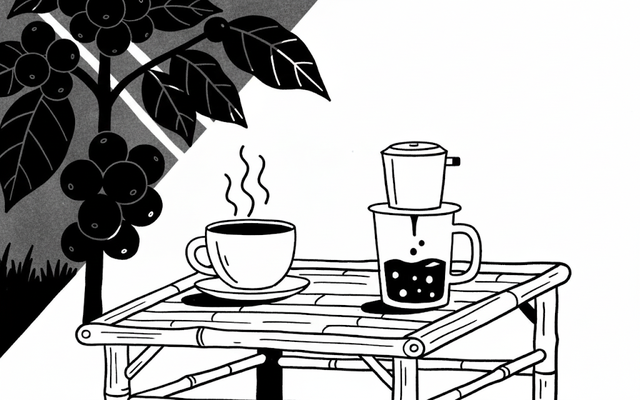
ILLUSTRATION: AI
This coffee garden has been there since his grandfather's time, then his father's, now his. Mr. An was born and raised in this land, spending most of his life around the coffee trees. From his first steps playing around the drying yard, to playing hide and seek with his friends behind the coffee bushes, then going to school, growing up, getting married, setting up a tent next to the coffee garden, and bringing his bride home through rows and rows of coffee trees... Mr. An has lived his entire life here.
The products from his garden have been distributed everywhere. Coffee beans from his hometown have blended into the general flow, going to every corner, from the sidewalk to luxury coffee shops, from the market stalls to the airport waiting rooms... contributing to creating a very unique culture of enjoyment.
That was when he heard the guys from the Agricultural Extension Center proudly recount it. Or from the gratitude events for coffee growers that some companies organized in his locality. Programs to increase the value of coffee trees, bring higher economic efficiency to the people, sustainable development in the future... Participating in the seminars, he felt that his work was so meaningful, not just simply the livelihood of a farming household, but also the first point in the supply chain of one of the most attractive products on the market. Also through the seminars, he and many other people heard reports on the situation of coffee production, consumption and issues arising in environmental protection...
Thanks to his son Binh, who is studying in the city, he has gradually become more interested in the main product from his garden. The previous two generations only worked in one direction, taking care of the coffee, harvesting, calling traders in and selling. He himself has done the same thing for more than half of his life to earn money to pay for his children's education. Coffee trees have brought benefits to his family for generations, making him sometimes not need to care about any other livelihood. He always thinks like a true "old farmer", taking good care of the coffee trees, regularly monitoring the weather, fertilizer, then waiting for the day to harvest, pick the fruit, dry it, peel it, pack the beans into bags, then give it to traders to do whatever they want, and transport it wherever they want. His life and his father's life were all like that, but being able to take care of many mouths to feed and send them to study far away was not much to think about.
The day before, the Agricultural Extension Center brought several business representatives to visit his coffee garden, then suggested that he cooperate in growing organic coffee. The business would provide technical guidance, monitor and take care of the garden with him, and then commit to purchasing the output at a reasonable price. Hearing that, Mr. An also nodded. However, regarding the farming method, he still had doubts. For more than half of his life, he was familiar with coffee trees, with fertilizers, with chemicals, and whenever he saw symptoms on the trunk or leaves, he would immediately use those chemicals to treat them. Now, the guys proposed growing organic coffee, making him hesitate. He was worried that this new type of investment would not go anywhere, even though the business committed to purchasing, but if the output was low, he would not earn much money. The guys are passionate about making clean coffee, from the place of cultivation to the last cup of coffee that consumers hold in their hands, will be standardized, upgraded, and strictly controlled to ensure stable quality and flavor...
According to the program, Mr. An let his coffee garden grow naturally, pledging not to use any pesticides. Initially, some trees could not cope on their own. They were used to the way he had fertilized them in the past, so they could not adapt, got fungus and disease, and produced shriveled, dry, black fruit. But gradually, most of the remaining trees adapted to the new living conditions, although the productivity decreased a bit, the coffee beans were also smaller but very firm and sturdy - looking at the finished coffee beans at this time, they were no different from athletes who had been trained through the sun and wind of the training ground.
The guys from the business said: "Instead of focusing on immediate profits, we are determined to make clean coffee, literally. Therefore, we need the companionship, understanding and commitment from farmers like you. Organic coffee is a long journey, there are many trade-offs, you reduce your income a bit, we even have to bear the loss... But when successful, the results are worth it! You and people like us can finally be proud to bring consumers a cup of clean coffee. So that consumers can confidently enjoy the aromatic, full-flavored roasted coffee without worrying about residual chemicals."
The strong scent of coffee still lingered around Mr. An, following his wandering thoughts. He could even smell the earth and grass in his garden. In the past, if there were a lot of weeds, he had to spray pesticides, and if the coffee plants had some diseases, he had to apply fertilizer to the roots or spray pesticides on the leaves. Now, he just slowly cuts the grass, pulls it back to the roots, creating a thick layer of biomass, adding organic matter to the soil to nourish the plants. He just leaves the coffee plants alone so they can train themselves, fight the environment, overcome the stages of pests and diseases, and become stronger... Thus, he unintentionally contributes his efforts to protecting and preserving the environment.
Binh was like that since he was little, he had to arrange his own study time, because his father worked hard in the garden, not taking care of anything. There was no scene of father and son staying up all night, helping with homework, struggling with the next day's class program like other families. Binh just went to school naked, carrying his bag, advancing a grade each year, asking his father for anything he needed. When he went to the city to study, his father only took care of tuition and accommodation for the first one or two years. Binh struggled and then found a part-time job to make ends meet. Drinking coffee in the middle of the street, he kept thinking about his coffee garden. He was the first person to support his father in switching to organic coffee...
Mr. An knows, like several generations of people around him, that coffee is considered a traditional drink, too familiar, just adding or reducing a little bit can make a little difference in the final stage. For some extreme customers, coffee is almost a standard drink. They just want a clean, pure cup of coffee to start a new day, to sip stories with friends... but what kind of decency would it be to take a sip of coffee with a strange smell inside!
Those were the stories Binh told him when he occasionally brought home boxes of filter powder and instant coffee for him to try. Mr. An shook his head and frowned at every dish... Coffee to him, to his father, to his grandfather was roasted coffee, roasted, ground and filtered to drink, only occasionally adding a little sugar. Binh grew up with the smell of coffee like that, making him allergic and extreme with mixed coffee methods. It was understandable that when he heard the businessmen present their commitment to making organic coffee, he raised his hand in support and immediately convinced Mr. An.
They shared that the coffee industry is currently in both a surplus and a shortage crisis. The surplus is such that you can see a coffee shop on the street, anyone can make and stir a cup and sell it for a few thousand dong. There are also too many choices. However, finding a cup of clean, quality coffee is not easy. How can you hold a cup of coffee on the street and take a sip, but try to find the feeling of pure, rich flavor in the middle of the highlands like Mr. An is having?
Looking at the brothers who are passionate about coffee, Mr. An feels very sorry. If they want users to change their old taste to move towards the true organic coffee line, they have to search for cooperative garden owners like him, then take care of the output for each product, and increase participation in promotional events. Coffee festivals, honoring coffee makers, manufacturing enterprises... are convenient occasions to introduce organic products to friends in the country and the world .
Binh studied economics, majored in marketing, and loved the coffee trees in his hometown. Needless to say, he was very passionate about it. In his final year, about to graduate, with little time left, he followed his brothers to all kinds of events, not missing any opportunity to learn more about organic coffee, about the tree that his father was growing with a new method. Binh believed that coffee trees should not be classified as a common agricultural product that has a good harvest but low prices, and then everyone rushes to rescue it. Developing sustainable coffee trees in the future is what is on the mind of this final year student.
Binh called to inform that he was about to join a business delegation to visit his father's garden to sign more consumption contracts: "Just consider your place, but we still have to register in many other places. In the near future, we may have to search all the way to the Central Highlands. We can only invest seriously and boost sales to be able to consume more coffee and create sustainable income for you and the people."
Mr. An blurted out: "Was there a pretty little girl with a round face in the group the other day?"
Binh shrank his neck and giggled over the phone:
Yes, that's right, dad!
I know you well!
Mr. An smiled and picked up the cup of coffee beside him and took a small sip. A slight bitterness ran through his tongue, but the sweet aftertaste still quietly seeped inside, at the back of his throat, lingering forever!
The fifth Living Well Writing Contest was held to encourage people to write about noble actions that have helped individuals or communities. This year, the contest focused on praising individuals or groups that have performed acts of kindness, bringing hope to those in difficult circumstances.
The highlight is the new environmental award category, honoring works that inspire and encourage action for a green, clean living environment. Through this, the Organizing Committee hopes to raise public awareness in protecting the planet for future generations.
The contest has diverse categories and prize structure, including:
Article categories: Journalism, reportage, notes or short stories, no more than 1,600 words for articles and 2,500 words for short stories.
Articles, reports, notes:
- 1 first prize: 30,000,000 VND
- 2 second prizes: 15,000,000 VND
- 3 third prizes: 10,000,000 VND
- 5 consolation prizes: 3,000,000 VND
Short story:
- 1 first prize: 30,000,000 VND
- 1 second prize: 20,000,000 VND
- 2 third prizes: 10,000,000 VND
- 4 consolation prizes: 5,000,000 VND
Photo category: Submit a photo series of at least 5 photos related to volunteer activities or environmental protection, along with the name of the photo series and a short description.
- 1 first prize: 10,000,000 VND
- 1 second prize: 5,000,000 VND
- 1 third prize: 3,000,000 VND
- 5 consolation prizes: 2,000,000 VND
Most Popular Prize: 5,000,000 VND
Prize for Excellent Essay on Environmental Topic: 5,000,000 VND
Honored Character Award: 30,000,000 VND
The deadline for submissions is October 16, 2025. The works will be evaluated through the preliminary and final rounds with the participation of a jury of famous names. The organizing committee will announce the list of winners on the "Beautiful Life" page. See detailed rules at thanhnien.vn .
Organizing Committee of the Beautiful Living Contest

Source: https://thanhnien.vn/ca-phe-khong-dang-truyen-ngan-du-thi-cua-nguyen-thanh-binh-185250912101338184.htm


![[Photo] General Secretary To Lam chairs the meeting of the Central Steering Committee on preventing and combating corruption, waste and negativity](https://vphoto.vietnam.vn/thumb/1200x675/vietnam/resource/IMAGE/2025/9/29/fb2a8712315d4213a16322588c57b975)

![[Photo] National Assembly Chairman Tran Thanh Man chairs the 8th Conference of full-time National Assembly deputies](https://vphoto.vietnam.vn/thumb/1200x675/vietnam/resource/IMAGE/2025/9/29/2c21459bc38d44ffaacd679ab9a0477c)
![[Photo] General Secretary To Lam receives US Ambassador to Vietnam Marc Knapper](https://vphoto.vietnam.vn/thumb/1200x675/vietnam/resource/IMAGE/2025/9/29/c8fd0761aa184da7814aee57d87c49b3)
![[Photo] General Secretary To Lam attends the ceremony to celebrate the 80th anniversary of the post and telecommunications sector and the 66th anniversary of the science and technology sector.](https://vphoto.vietnam.vn/thumb/1200x675/vietnam/resource/IMAGE/2025/9/29/8e86b39b8fe44121a2b14a031f4cef46)
![[Photo] Many streets in Hanoi were flooded due to the effects of storm Bualoi](https://vphoto.vietnam.vn/thumb/1200x675/vietnam/resource/IMAGE/2025/9/29/18b658aa0fa2495c927ade4bbe0096df)





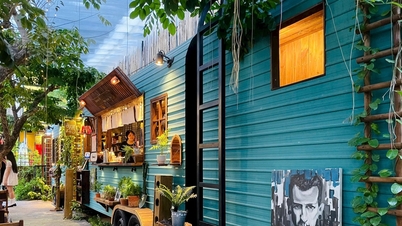



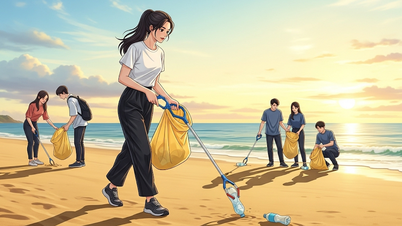
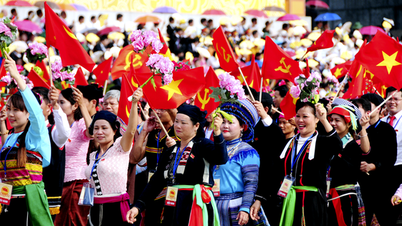

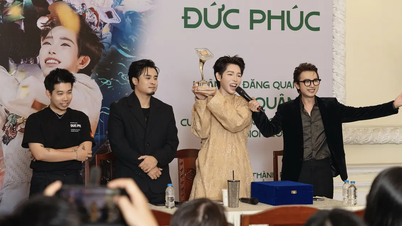


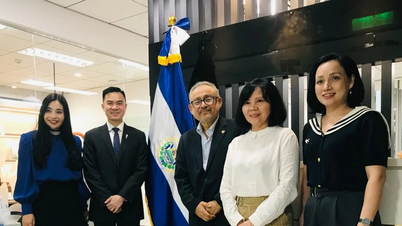

























































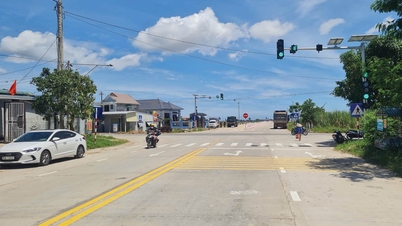



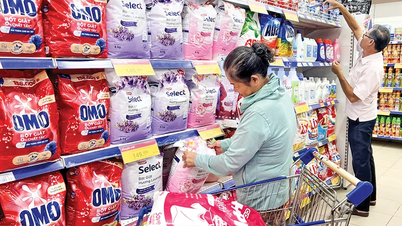

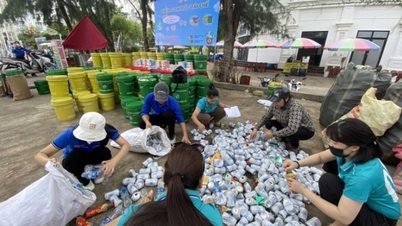

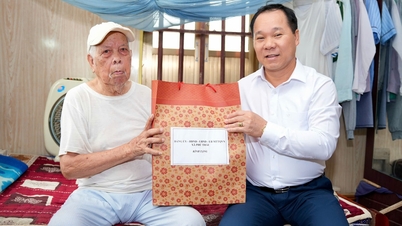












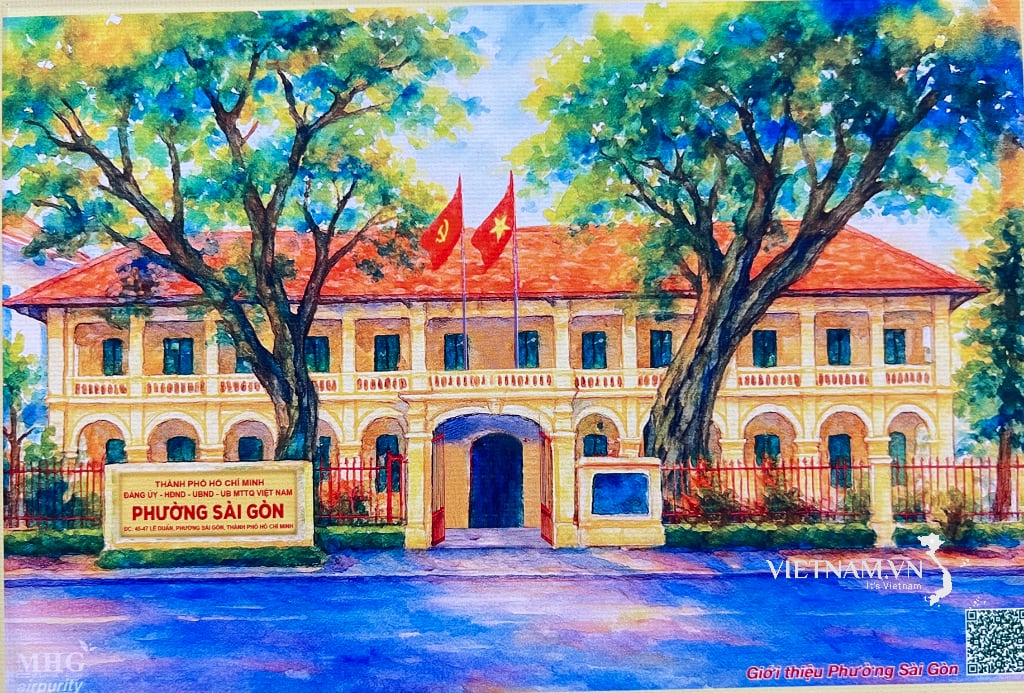
Comment (0)